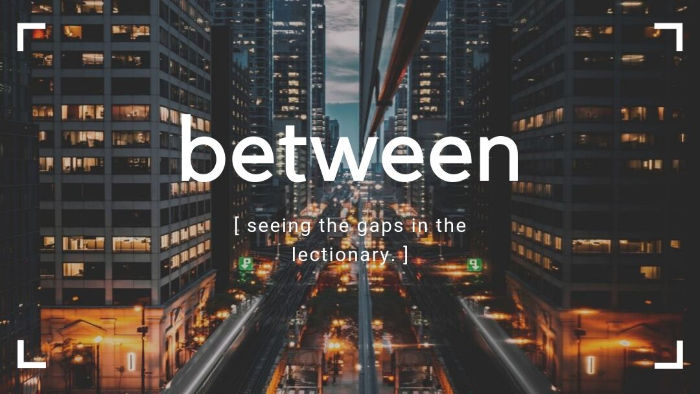A look at the gaps in the lectionary.
This week: the gap between Proper 6A and 7A
The text: Matthew 10:9-23
Last week, the lectionary offered an optional text, exploring the sending of the apostles. If you read it this past week, then it flows right into this week’s gospel.
Both of these texts deal with the challenge of apostleship. An idea that makes sense to us in history more than in the world.
Jesus empowers his disciples to become apostles. In a sense, students become practitioners. They don’t stop being students, of course. They take on a role of embodying it. Like student-teaching.
For us to understand ourselves in this way, however, probably takes more intention. It means seeing our primary place as followers of Jesus through the lens of students hoping to learn and teach. Who seek the chance to proclaim the Good News and heal like Jesus.
For all the things we can say about church-going, I’m not sure this is what we can count as normal.
The Other Thing
The other thing these two passages have in common is the expectation of division.
For those of us who often see ourselves through a lens of unity-building, the expectation of division is anathema to our plans.
In a sense, this is the big, glaring focal-point for many of us as we read these, hoping to hear about love from a compassionate God. This, instead, slaps us as the unjust meanderings of a deceptive messiah—if that’s our own inclination. Or fear.
This, of course, is the other side of apostleship. What happens when we live into our call to be different—we’ll be treated as different. When we focus on loving our neighbor, some neighbors would hate us for loving the “wrong” people. Isn’t this obvious?
That’s the thing. Isn’t there a downside to following Jesus? That we, too, must take up our cross and follow him to death?
We’ve been taught there’s a cost. But we act like it is the opposite. It is free, easy, and nothing has to change. And we benefit from it—so we make something out of the deal.
The Challenge of Apostleship
Isn’t it telling that we perceive division as “bad” and apostleship as “good”? The one we loathe and the other we love.
Of course, some relish division. They don’t see the problem. Often trying to create and dispense the pain as proof of their righteousness.
What should be clear is how Jesus pairs these two ideas together, anyway. He doesn’t care that we don’t like it. Not because we are to be indifferent to pain. But because we can’t change who they are.
We’ll see in this week’s lesson this very challenge. That following Jesus is the act of division. Following Jesus isn’t a synonym for persecuting gay people, remember. That’s simply persecuting gay people. Nor is one being persecuted for persecuting gay people. That’s self-justifying hatred cloaked as Christian witness.
Apostleship is…
- Standing on the side of nonviolent resistance will get you death threats.
- Saying that the death penalty is evil will ruin Thanksgiving dinner.
- Naming the evils of Christian nationalism leads to nationalists threatening us.
- Seeking to heal the wounds of racism, include the marginalized, use our churches to give beds to the homeless…
The problem is that we are prone to consider siding with the marginalized somehow more divisive than the marginalizing itself.
Which means we need to flip that around.
